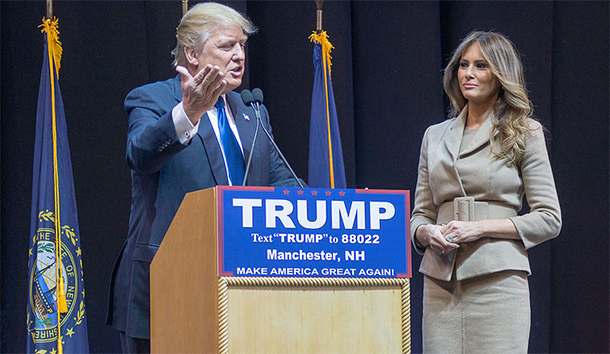National Review’s February 15 number, “Against Trump,” carries a leading editorial condemning the Republican presidential candidate as a man who “would trash the broad conservative ideological consensus within the GOP in favor of a free-floating populism with strong-man overtones.” A subsequent article by Ramesh Ponnuru and Richard Lowry, “Toward a Conservative Populism,” effectively suggests a practical approach to realizing, or at least accommodating, such a thing—under the strict guidance of the “conservative movement,” presumably. Unfortunately, the editors are looking in opposite directions at once, something a political strategist ought never to do.
Aaron D. Wolf, in Heresies (pp. 31-32), explains why conservatism by its very nature is not ideological. Setting his argument aside here, ideologies (which Kenneth Minogue defined as Gnostic keys, reserved for a special few, that unlock the meaning of history according to a single formula that must never be questioned) are the playthings of pseudointellectuals, appropriated from time to time by unscrupulous politicians determined on establishing totalitarian control for themselves, but with little or no interest for ordinary people. National Review has not been the intellectual journal it once was since being taken over a quarter-century ago by Republican party men, but still it remains too cerebral by far for the typical supporter of Donald Trump: the choice of non- and anti-intellectual conservatives, or “populists,” whose indifference to “ideologies” and “principles”—even conservative ones—is matched only perhaps by their contempt for the Republican establishment National Review represents and defends. “Against Trump” appeals on almost every page to “conservative principles”—but can an ideology really have principles? The whole point of ideology is that it exists entirely beyond principle. One contributor, for instance, speaks of conservatives “cherishing liberty.” The way Marxists cherish equality, perhaps? NR, one expects, will have a hard time persuading American populists that “conservatism” “cherishes” them as much even as Marxism cherishes the heroic workers. Another writer opines that, “Trump doesn’t know . . . how ordinary people live.” What he does seem to know, however, is how ordinary people think—something about which neither National Review nor Republican politicians appear to have an inkling.
The authors of “Toward a Conservative Populism” do seem to realize that the “conservative movement” and the Republican establishment alike have failed to recognize certain political blind spots on their part, and—much worse, from their point of view—have missed political opportunities as a result. What the magazine should do now, if it wishes to correct for its past failings, is to admit frankly that Donald Trump is right on many issues of great importance not only to popular conservatives but to our times, issues that the editors themselves ought to have recognized decades ago, and acknowledge humbly that had they and the Republican establishment done as much, and responded appropriately, those issues might today have a champion more responsible and palatable than Donald Trump.
[Image Credit: By Marc Nozell from Merrimack, New Hampshire, USA (20160208-DSC08078) [CC BY 2.0 (http://creativecommons.org/licenses/by/2.0)], via Wikimedia Commons]

Leave a Reply